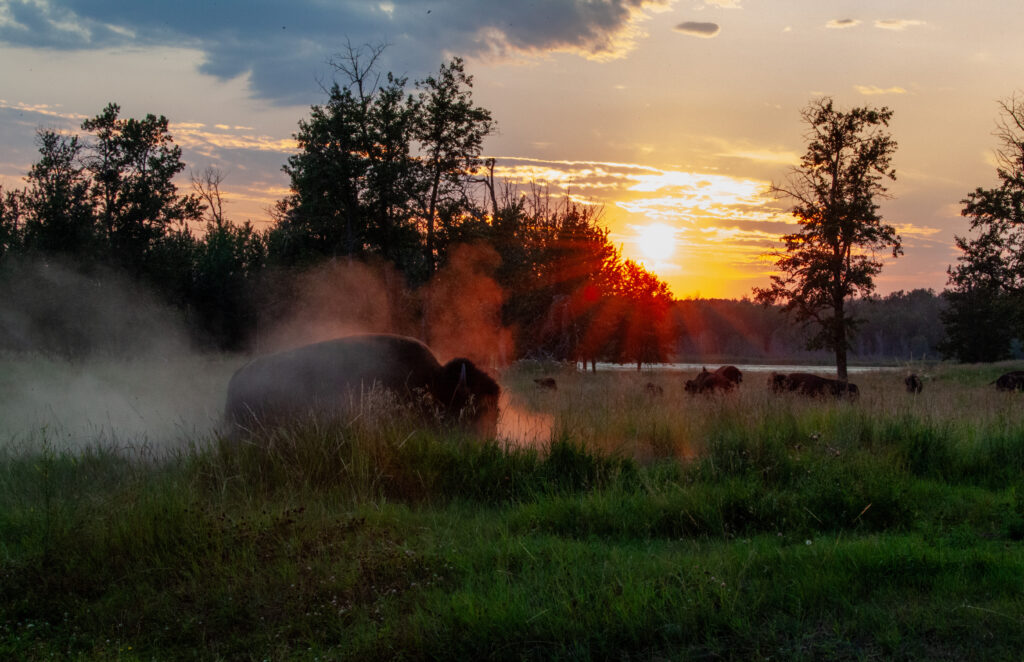- cross-posted to:
- ecology@mander.xyz
- cross-posted to:
- ecology@mander.xyz
Millions of bison once roamed the grasslands, until colonialism nearly wiped them out. Now, Indigenous people are bringing them back and restoring balance to their homelands
My Métis ancestors hunted and lived relationally with Buffalo, and I can envision how the prairies must have looked hundreds of years ago when millions roamed freely from Alaska’s boreal forests to the western grasslands of Mexico, across the continent from Banff to the eastern Appalachian Mountains. Then colonizers nearly wiped them out, part of a deliberate genocidal effort to starve the Indigenous nations of the plains.
Now, there are far fewer Buffalo to be seen, but Indigenous communities are working to rematriate them to the grasslands. Rematriation, a concept advanced by the late Sto:lo author Lee Maracle, is the process of restoring lands and cultures, done with deep reverence to honour not only the past and present but also the future, and rooted in Indigenous law.
The Buffalo Treaty, signed in September 2014 by eight nations, now has more than 50 signatories and includes 11 articles emphasizing co-operation, renewal and the restoration of Buffalo populations. This cross-border collaboration aims to return Buffalo to their rightful wild status, as they are currently considered “domestic” due to their historical confinement, a word that hardly suits their ancestral legacy.
Buffalo don’t care about borders, and yet, there are rigid regulations in place that stop their movement. The treaty envisions ecological corridors that will allow Buffalo to migrate and roam freely, similar to elk, bears, deer and moose. These corridors are essential for maintaining genetic diversity, supporting the vast ecosystem dynamics of the plains, preserving cultural and spiritual connections for Indigenous peoples and ensuring the long-term viability of bison populations by preventing overgrazing and disease outbreaks.



Hell yeah. Sometimes I dream of living to see all America's fences ripped out and six million tatanka just living their best lives.